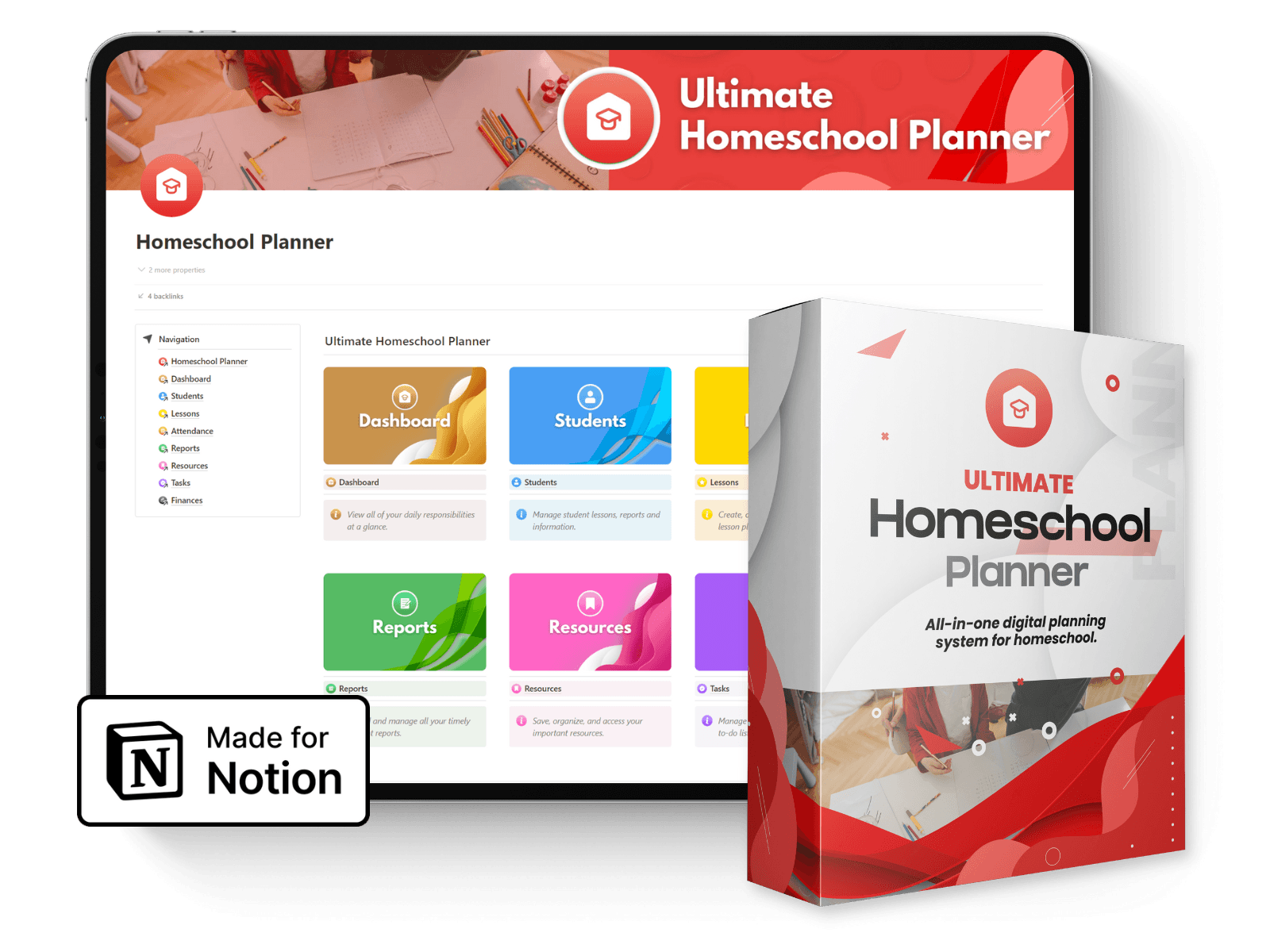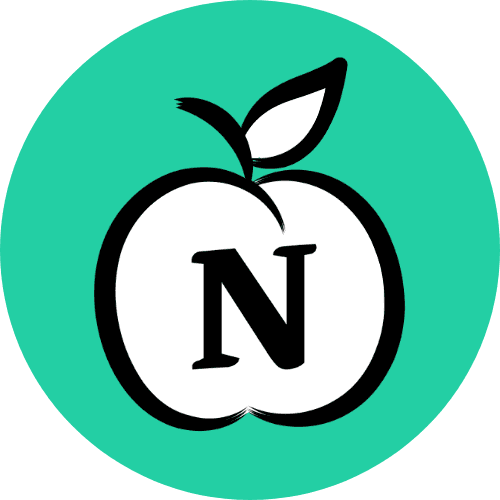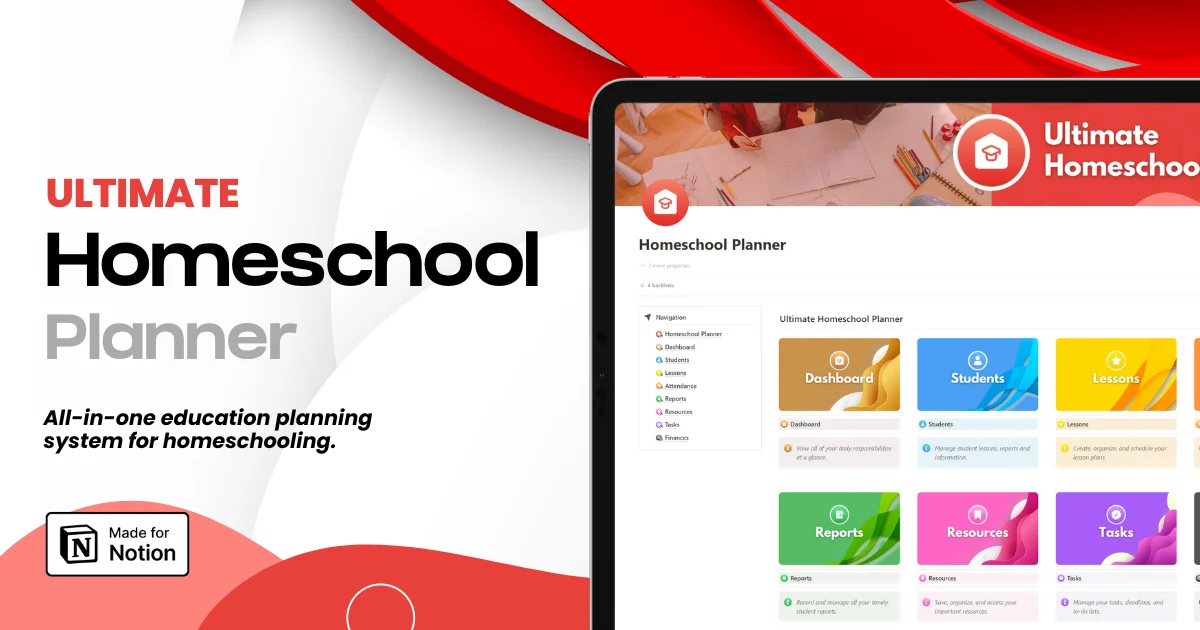

Top 10 Pros and Cons of Homeschooling: A Comprehensive Guide
Top 10 Pros and Cons of Homeschooling: A Comprehensive Guide
Top 10 Pros and Cons of Homeschooling: A Comprehensive Guide

Article by
Milo
ESL Content Coordinator & Educator
ESL Content Coordinator & Educator
All Posts
In recent years, homeschooling has seen a dramatic surge in popularity. According to the National Home Education Research Institute, there were about 3.7 million homeschool students in the United States in 2020-2021, a significant increase from 2.5 million in spring 2019. This growing trend has led many parents to consider homeschooling as a viable alternative to traditional education.
But why are so many families turning to homeschooling? The reasons vary widely, from dissatisfaction with the public school system to a desire for more educational freedom and family time. Some parents choose homeschooling to provide a safer learning environment, while others see it as an opportunity to tailor education to their child's specific needs and interests.
However, like any educational approach, homeschooling comes with its own set of advantages and challenges. Before making the decision to homeschool, it's crucial to understand both the potential benefits and drawbacks. This comprehensive guide will explore the top 10 pros and cons of homeschooling, providing you with the information you need to make an informed decision about your child's education.
Whether you're considering homeschooling for the first time or re-evaluating your current educational choices, understanding these pros and cons will help you determine if homeschooling aligns with your family's values, lifestyle, and educational goals. Let's dive into the top 5 pros and top 5 cons of homeschooling to give you a balanced perspective on this increasingly popular educational option.
In recent years, homeschooling has seen a dramatic surge in popularity. According to the National Home Education Research Institute, there were about 3.7 million homeschool students in the United States in 2020-2021, a significant increase from 2.5 million in spring 2019. This growing trend has led many parents to consider homeschooling as a viable alternative to traditional education.
But why are so many families turning to homeschooling? The reasons vary widely, from dissatisfaction with the public school system to a desire for more educational freedom and family time. Some parents choose homeschooling to provide a safer learning environment, while others see it as an opportunity to tailor education to their child's specific needs and interests.
However, like any educational approach, homeschooling comes with its own set of advantages and challenges. Before making the decision to homeschool, it's crucial to understand both the potential benefits and drawbacks. This comprehensive guide will explore the top 10 pros and cons of homeschooling, providing you with the information you need to make an informed decision about your child's education.
Whether you're considering homeschooling for the first time or re-evaluating your current educational choices, understanding these pros and cons will help you determine if homeschooling aligns with your family's values, lifestyle, and educational goals. Let's dive into the top 5 pros and top 5 cons of homeschooling to give you a balanced perspective on this increasingly popular educational option.
Ultimate Homeschool Planner
The ultimate all-in-one homeschooling system in Notion.
Learn More

Ultimate Homeschool Planner
The ultimate all-in-one homeschooling system in Notion.
Learn More

Ultimate Homeschool Planner
The ultimate all-in-one homeschooling system in Notion.
Learn More

The Top 5 Pros of Homeschooling
1. Personalized Learning Experience
One of the most significant advantages of homeschooling is the ability to tailor the educational experience to your child's unique needs, interests, and learning style. Unlike traditional schools, where a one-size-fits-all approach is often necessary, homeschooling allows for:
Customized curriculum: You can choose materials and methods that best suit your child's learning preferences and academic goals.
Flexible pacing: Your child can move quickly through subjects they grasp easily and spend more time on challenging areas without feeling rushed or held back.
Interest-led learning: You can incorporate your child's passions and interests into their studies, making learning more engaging and relevant.
For example, a child fascinated by marine biology could integrate that interest across subjects, studying ocean ecosystems in science, maritime history in social studies, and using marine life as inspiration in art projects.

2. Flexible Schedule
Homeschooling offers unparalleled flexibility in terms of when and where learning takes place. This flexibility can benefit families in numerous ways:
Customized daily routines: You can structure the school day to align with your child's natural rhythms and energy levels.
Year-round learning: You're not bound by traditional school calendars, allowing for more frequent breaks or year-round schooling if preferred.
Travel opportunities: Learning can happen anywhere, making it easier to plan educational trips or accommodate family travel without disrupting education.
This flexibility can be particularly beneficial for families with non-traditional work schedules, children involved in time-intensive extracurricular activities, or those who simply prefer a more relaxed approach to daily life.
3. One-on-One Attention
In a homeschool setting, your child receives individualized attention that's hard to replicate in a traditional classroom:
Immediate feedback: You can quickly identify and address any misunderstandings or areas of difficulty.
Personalized teaching methods: You can adapt your teaching style to best suit your child's learning preferences.
More time for in-depth exploration: Without the constraints of a large class, you can spend extra time on subjects or concepts that particularly interest your child or require more explanation.
This focused attention can be especially beneficial for children who struggle in certain areas or those who are gifted and need additional challenges.
4. Safe Learning Environment
Homeschooling provides a controlled, safe environment for learning, which can be particularly important for some families:
Reduced exposure to negative influences: You have more control over the social interactions and influences your child experiences during their formative years.
Elimination of school-related anxieties: Issues like bullying, peer pressure, or school violence are significantly reduced or eliminated in a homeschool setting.
Comfortable learning atmosphere: Some children thrive in the comfort and familiarity of their home environment, leading to reduced stress and increased focus on learning.
While it's important to note that children will eventually need to navigate diverse social situations, homeschooling can provide a safe foundation from which to build these skills.
5. Strong Family Bonds
Homeschooling often results in stronger family relationships due to the increased time spent together:
Shared learning experiences: Parents and children can learn together, fostering a lifelong love of learning.
More quality time: The flexible schedule allows for more family activities and bonding opportunities.
Sibling relationships: Siblings of different ages often work together, strengthening their bonds and developing mentoring skills.
Many homeschooling families report that this increased family time leads to deeper connections and a more cohesive family unit.

The Top 5 Cons of Homeschooling
1. Time and Dedication Required from Parents
Homeschooling is a significant commitment that requires substantial time and energy from parents:
Planning and preparation: Creating lesson plans, researching curricula, and preparing materials can be time-consuming.
Daily instruction: Parents must dedicate several hours each day to actively teaching their children.
Continuous learning: Parents often need to refresh their own knowledge or learn new subjects to effectively teach their children.
This time commitment can be challenging, especially for single parents or families where both parents work outside the home. It may require adjustments to work schedules or even career sacrifices to accommodate homeschooling responsibilities.
2. Socialization Concerns
One of the most common criticisms of homeschooling is the potential lack of socialization opportunities:
Limited peer interaction: Homeschooled children may have fewer opportunities for daily interaction with peers their own age.
Reduced exposure to diverse perspectives: Without the diversity found in traditional schools, children might have less exposure to different cultures, backgrounds, and viewpoints.
Fewer opportunities for team activities: Organized sports, group projects, and other collaborative activities may require extra effort to incorporate into a homeschool setting.
While these concerns can be addressed through homeschool co-ops, community activities, and organized sports, it often requires proactive effort from parents to ensure adequate socialization.

3. Financial Considerations
Homeschooling can have significant financial implications for families:
Cost of materials: Purchasing curriculum, textbooks, and supplies can be expensive, especially when catering to multiple children or subjects.
Potential loss of income: If one parent reduces work hours or leaves a job to homeschool, it can result in a substantial decrease in household income.
Extracurricular expenses: Costs for field trips, classes, and activities that would typically be provided by a school may now fall to the parents.
While there are ways to homeschool on a budget, the financial aspect is an important consideration for many families.
4. Lack of Facilities and Resources
Home environments may not offer the same resources as traditional schools:
Limited access to specialized equipment: Science labs, art studios, and technology resources may be difficult or expensive to replicate at home.
Absence of school facilities: Gymnasiums, libraries, and performance spaces are not readily available in most homes.
Fewer opportunities for specialized instruction: Access to teachers with expertise in specific subjects, such as advanced mathematics or foreign languages, may be limited.
While community resources and online learning can help bridge some of these gaps, it may require additional effort and expense to provide a comprehensive educational experience.
5. Increased Responsibility and Pressure on Parents
Homeschooling places the primary responsibility for a child's education squarely on the parents' shoulders:
Educational accountability: Parents must ensure their children meet educational standards and are prepared for future academic or career pursuits.
Balancing roles: It can be challenging to separate the roles of parent and teacher, potentially causing strain in the parent-child relationship.
Self-doubt and burnout: Parents may experience periods of uncertainty about their teaching abilities or feel overwhelmed by the constant demands of homeschooling.
This increased responsibility can be stressful and may lead to burnout if parents don't have adequate support systems in place.
Balancing the Pros and Cons: Is Homeschooling Right for Your Family?
After considering the advantages and challenges of homeschooling, you may be wondering how to determine if it's the right choice for your family. Here are some key factors to consider and questions to ask yourself:
1. Family Dynamics and Resources
Time availability: Do you or your partner have the time to dedicate to full-time homeschooling? Can you adjust work schedules or other commitments to accommodate this responsibility?
Financial situation: Can your family manage potential changes in income or additional expenses related to homeschooling?
Family support: Are all family members on board with the decision to homeschool? How will it impact siblings or other family members?
2. Educational Philosophy and Goals
Learning style: Does your child have a particular learning style that might benefit from a more personalized approach? To learn more about different learning styles, visit NCC Home Learning’s blog.
Educational priorities: What are your main goals for your child's education? How well does homeschooling align with these objectives?
Curriculum preferences: Are you comfortable selecting and implementing curriculum choices? Do you prefer a structured approach or a more flexible, eclectic style?

3. Social and Emotional Considerations
Child's personality: Is your child self-motivated and independent, or do they thrive on peer interaction and structured environments?
Socialization opportunities: Are there homeschool groups, co-ops, or community activities in your area that can provide social interactions for your child?
Family relationships: How might homeschooling affect the dynamics between siblings and between parents and children?
4. Long-term Planning
College and career preparation: How will you ensure your child is prepared for higher education or career opportunities?
Transitioning options: Are you open to the possibility of transitioning to or from traditional schooling if needed?
Legal requirements: Are you familiar with and able to meet the homeschooling regulations in your state or country?
5. Personal Assessment
Teaching ability: Do you feel confident in your ability to teach across various subjects? Are you willing to learn alongside your child?
Patience and flexibility: Can you adapt to the challenges of being both parent and teacher? Are you prepared for the day-to-day realities of homeschooling?
Support network: Do you have access to homeschooling support groups or mentors who can provide guidance and resources?
Making Your Decision
Ultimately, the decision to homeschool is a personal one that depends on your unique family circumstances, values, and goals. Here are some steps to help you make an informed decision:
Research thoroughly: Beyond this guide, explore local homeschooling resources, attend homeschool conferences, and talk to experienced homeschooling families.
Trial period: Consider a trial run during summer break or for a semester to see how homeschooling fits your family dynamic.
Evaluate regularly: If you decide to homeschool, be prepared to reassess your decision periodically to ensure it continues to meet your family's needs.
Stay flexible: Remember that choosing to homeschool doesn't have to be a permanent decision. Many families switch between homeschooling and traditional schooling as their circumstances change.
Seek support: Whether you choose to homeschool or not, seek out support from like-minded families and educational professionals to ensure the best possible outcomes for your child.
By carefully considering these factors and honestly assessing your family's situation, you'll be better equipped to decide whether homeschooling is the right choice for you.
Resources and Support for Homeschooling Families
If you're considering homeschooling or have already decided to embark on this educational journey, numerous resources and support systems are available to help you succeed:
1. Online Communities and Forums
Homeschool.com: A comprehensive website with articles, product reviews, and a vibrant community forum.
The Homeschool Mom: Offers curriculum reviews, planning tools, and a supportive community.
Reddit r/homeschool: An active subreddit where homeschoolers share experiences and advice.
2. Local Homeschool Groups and Co-ops
Search for local homeschool associations in your area. These groups often organize field trips, classes, and social events.
National Home School Association: Provides information on finding local homeschool groups and co-ops.
3. Curriculum Resources
Cathy Duffy Reviews: Offers detailed reviews of various homeschool curricula.
Rainbow Resource Center: A vast catalog of homeschool materials and supplies.
Khan Academy: Free online courses covering a wide range of subjects.
4. Legal and Advocacy Organizations
Home School Legal Defense Association (HSLDA): Provides legal support and information on homeschooling laws by state.
National Home Education Research Institute (NHERI): Offers research and resources on homeschooling effectiveness.
5. Educational Materials and Subscriptions
Outschool: Online classes and activities for homeschoolers.
ABCmouse and Adventure Academy: Interactive learning programs for younger children.
BrainPOP: Animated educational videos covering various subjects.
6. Standardized Testing and College Preparation
College Board: Information on SAT/ACT testing and AP courses for homeschoolers.
The Princeton Review: Test prep resources and college admissions guidance.
7. State-Specific Resources
Check your state's Department of Education website for specific homeschooling requirements and resources. For example:
Look for state-specific homeschool organizations that can provide localized support and information.
Remember, the homeschooling community is generally very supportive and willing to share experiences and resources. Don't hesitate to reach out and connect with other homeschooling families in your area or online.
Conclusion
Homeschooling is a significant educational choice that comes with both remarkable benefits and notable challenges. As we've explored in this comprehensive guide, the top pros of homeschooling include a personalized learning experience, flexible scheduling, one-on-one attention, a safe learning environment, and stronger family bonds. These advantages can lead to a rich, tailored educational experience that meets your child's unique needs and aligns with your family's values.
Assess your family's resources, including time, finances, and support systems.
Consider your educational philosophy and how it aligns with homeschooling.
Evaluate your child's learning style and social needs.
Think about long-term educational and career goals.
Honestly assess your own abilities, patience, and commitment to the homeschooling process.
Whether you choose to homeschool or opt for traditional education, the key is to make an informed decision that best serves your child's educational needs and your family's overall well-being. Remember that educational choices can be flexible – many families find success in combining elements of homeschooling with traditional schooling or in transitioning between the two as their needs change over time.
The Top 5 Pros of Homeschooling
1. Personalized Learning Experience
One of the most significant advantages of homeschooling is the ability to tailor the educational experience to your child's unique needs, interests, and learning style. Unlike traditional schools, where a one-size-fits-all approach is often necessary, homeschooling allows for:
Customized curriculum: You can choose materials and methods that best suit your child's learning preferences and academic goals.
Flexible pacing: Your child can move quickly through subjects they grasp easily and spend more time on challenging areas without feeling rushed or held back.
Interest-led learning: You can incorporate your child's passions and interests into their studies, making learning more engaging and relevant.
For example, a child fascinated by marine biology could integrate that interest across subjects, studying ocean ecosystems in science, maritime history in social studies, and using marine life as inspiration in art projects.

2. Flexible Schedule
Homeschooling offers unparalleled flexibility in terms of when and where learning takes place. This flexibility can benefit families in numerous ways:
Customized daily routines: You can structure the school day to align with your child's natural rhythms and energy levels.
Year-round learning: You're not bound by traditional school calendars, allowing for more frequent breaks or year-round schooling if preferred.
Travel opportunities: Learning can happen anywhere, making it easier to plan educational trips or accommodate family travel without disrupting education.
This flexibility can be particularly beneficial for families with non-traditional work schedules, children involved in time-intensive extracurricular activities, or those who simply prefer a more relaxed approach to daily life.
3. One-on-One Attention
In a homeschool setting, your child receives individualized attention that's hard to replicate in a traditional classroom:
Immediate feedback: You can quickly identify and address any misunderstandings or areas of difficulty.
Personalized teaching methods: You can adapt your teaching style to best suit your child's learning preferences.
More time for in-depth exploration: Without the constraints of a large class, you can spend extra time on subjects or concepts that particularly interest your child or require more explanation.
This focused attention can be especially beneficial for children who struggle in certain areas or those who are gifted and need additional challenges.
4. Safe Learning Environment
Homeschooling provides a controlled, safe environment for learning, which can be particularly important for some families:
Reduced exposure to negative influences: You have more control over the social interactions and influences your child experiences during their formative years.
Elimination of school-related anxieties: Issues like bullying, peer pressure, or school violence are significantly reduced or eliminated in a homeschool setting.
Comfortable learning atmosphere: Some children thrive in the comfort and familiarity of their home environment, leading to reduced stress and increased focus on learning.
While it's important to note that children will eventually need to navigate diverse social situations, homeschooling can provide a safe foundation from which to build these skills.
5. Strong Family Bonds
Homeschooling often results in stronger family relationships due to the increased time spent together:
Shared learning experiences: Parents and children can learn together, fostering a lifelong love of learning.
More quality time: The flexible schedule allows for more family activities and bonding opportunities.
Sibling relationships: Siblings of different ages often work together, strengthening their bonds and developing mentoring skills.
Many homeschooling families report that this increased family time leads to deeper connections and a more cohesive family unit.

The Top 5 Cons of Homeschooling
1. Time and Dedication Required from Parents
Homeschooling is a significant commitment that requires substantial time and energy from parents:
Planning and preparation: Creating lesson plans, researching curricula, and preparing materials can be time-consuming.
Daily instruction: Parents must dedicate several hours each day to actively teaching their children.
Continuous learning: Parents often need to refresh their own knowledge or learn new subjects to effectively teach their children.
This time commitment can be challenging, especially for single parents or families where both parents work outside the home. It may require adjustments to work schedules or even career sacrifices to accommodate homeschooling responsibilities.
2. Socialization Concerns
One of the most common criticisms of homeschooling is the potential lack of socialization opportunities:
Limited peer interaction: Homeschooled children may have fewer opportunities for daily interaction with peers their own age.
Reduced exposure to diverse perspectives: Without the diversity found in traditional schools, children might have less exposure to different cultures, backgrounds, and viewpoints.
Fewer opportunities for team activities: Organized sports, group projects, and other collaborative activities may require extra effort to incorporate into a homeschool setting.
While these concerns can be addressed through homeschool co-ops, community activities, and organized sports, it often requires proactive effort from parents to ensure adequate socialization.

3. Financial Considerations
Homeschooling can have significant financial implications for families:
Cost of materials: Purchasing curriculum, textbooks, and supplies can be expensive, especially when catering to multiple children or subjects.
Potential loss of income: If one parent reduces work hours or leaves a job to homeschool, it can result in a substantial decrease in household income.
Extracurricular expenses: Costs for field trips, classes, and activities that would typically be provided by a school may now fall to the parents.
While there are ways to homeschool on a budget, the financial aspect is an important consideration for many families.
4. Lack of Facilities and Resources
Home environments may not offer the same resources as traditional schools:
Limited access to specialized equipment: Science labs, art studios, and technology resources may be difficult or expensive to replicate at home.
Absence of school facilities: Gymnasiums, libraries, and performance spaces are not readily available in most homes.
Fewer opportunities for specialized instruction: Access to teachers with expertise in specific subjects, such as advanced mathematics or foreign languages, may be limited.
While community resources and online learning can help bridge some of these gaps, it may require additional effort and expense to provide a comprehensive educational experience.
5. Increased Responsibility and Pressure on Parents
Homeschooling places the primary responsibility for a child's education squarely on the parents' shoulders:
Educational accountability: Parents must ensure their children meet educational standards and are prepared for future academic or career pursuits.
Balancing roles: It can be challenging to separate the roles of parent and teacher, potentially causing strain in the parent-child relationship.
Self-doubt and burnout: Parents may experience periods of uncertainty about their teaching abilities or feel overwhelmed by the constant demands of homeschooling.
This increased responsibility can be stressful and may lead to burnout if parents don't have adequate support systems in place.
Balancing the Pros and Cons: Is Homeschooling Right for Your Family?
After considering the advantages and challenges of homeschooling, you may be wondering how to determine if it's the right choice for your family. Here are some key factors to consider and questions to ask yourself:
1. Family Dynamics and Resources
Time availability: Do you or your partner have the time to dedicate to full-time homeschooling? Can you adjust work schedules or other commitments to accommodate this responsibility?
Financial situation: Can your family manage potential changes in income or additional expenses related to homeschooling?
Family support: Are all family members on board with the decision to homeschool? How will it impact siblings or other family members?
2. Educational Philosophy and Goals
Learning style: Does your child have a particular learning style that might benefit from a more personalized approach? To learn more about different learning styles, visit NCC Home Learning’s blog.
Educational priorities: What are your main goals for your child's education? How well does homeschooling align with these objectives?
Curriculum preferences: Are you comfortable selecting and implementing curriculum choices? Do you prefer a structured approach or a more flexible, eclectic style?

3. Social and Emotional Considerations
Child's personality: Is your child self-motivated and independent, or do they thrive on peer interaction and structured environments?
Socialization opportunities: Are there homeschool groups, co-ops, or community activities in your area that can provide social interactions for your child?
Family relationships: How might homeschooling affect the dynamics between siblings and between parents and children?
4. Long-term Planning
College and career preparation: How will you ensure your child is prepared for higher education or career opportunities?
Transitioning options: Are you open to the possibility of transitioning to or from traditional schooling if needed?
Legal requirements: Are you familiar with and able to meet the homeschooling regulations in your state or country?
5. Personal Assessment
Teaching ability: Do you feel confident in your ability to teach across various subjects? Are you willing to learn alongside your child?
Patience and flexibility: Can you adapt to the challenges of being both parent and teacher? Are you prepared for the day-to-day realities of homeschooling?
Support network: Do you have access to homeschooling support groups or mentors who can provide guidance and resources?
Making Your Decision
Ultimately, the decision to homeschool is a personal one that depends on your unique family circumstances, values, and goals. Here are some steps to help you make an informed decision:
Research thoroughly: Beyond this guide, explore local homeschooling resources, attend homeschool conferences, and talk to experienced homeschooling families.
Trial period: Consider a trial run during summer break or for a semester to see how homeschooling fits your family dynamic.
Evaluate regularly: If you decide to homeschool, be prepared to reassess your decision periodically to ensure it continues to meet your family's needs.
Stay flexible: Remember that choosing to homeschool doesn't have to be a permanent decision. Many families switch between homeschooling and traditional schooling as their circumstances change.
Seek support: Whether you choose to homeschool or not, seek out support from like-minded families and educational professionals to ensure the best possible outcomes for your child.
By carefully considering these factors and honestly assessing your family's situation, you'll be better equipped to decide whether homeschooling is the right choice for you.
Resources and Support for Homeschooling Families
If you're considering homeschooling or have already decided to embark on this educational journey, numerous resources and support systems are available to help you succeed:
1. Online Communities and Forums
Homeschool.com: A comprehensive website with articles, product reviews, and a vibrant community forum.
The Homeschool Mom: Offers curriculum reviews, planning tools, and a supportive community.
Reddit r/homeschool: An active subreddit where homeschoolers share experiences and advice.
2. Local Homeschool Groups and Co-ops
Search for local homeschool associations in your area. These groups often organize field trips, classes, and social events.
National Home School Association: Provides information on finding local homeschool groups and co-ops.
3. Curriculum Resources
Cathy Duffy Reviews: Offers detailed reviews of various homeschool curricula.
Rainbow Resource Center: A vast catalog of homeschool materials and supplies.
Khan Academy: Free online courses covering a wide range of subjects.
4. Legal and Advocacy Organizations
Home School Legal Defense Association (HSLDA): Provides legal support and information on homeschooling laws by state.
National Home Education Research Institute (NHERI): Offers research and resources on homeschooling effectiveness.
5. Educational Materials and Subscriptions
Outschool: Online classes and activities for homeschoolers.
ABCmouse and Adventure Academy: Interactive learning programs for younger children.
BrainPOP: Animated educational videos covering various subjects.
6. Standardized Testing and College Preparation
College Board: Information on SAT/ACT testing and AP courses for homeschoolers.
The Princeton Review: Test prep resources and college admissions guidance.
7. State-Specific Resources
Check your state's Department of Education website for specific homeschooling requirements and resources. For example:
Look for state-specific homeschool organizations that can provide localized support and information.
Remember, the homeschooling community is generally very supportive and willing to share experiences and resources. Don't hesitate to reach out and connect with other homeschooling families in your area or online.
Conclusion
Homeschooling is a significant educational choice that comes with both remarkable benefits and notable challenges. As we've explored in this comprehensive guide, the top pros of homeschooling include a personalized learning experience, flexible scheduling, one-on-one attention, a safe learning environment, and stronger family bonds. These advantages can lead to a rich, tailored educational experience that meets your child's unique needs and aligns with your family's values.
Assess your family's resources, including time, finances, and support systems.
Consider your educational philosophy and how it aligns with homeschooling.
Evaluate your child's learning style and social needs.
Think about long-term educational and career goals.
Honestly assess your own abilities, patience, and commitment to the homeschooling process.
Whether you choose to homeschool or opt for traditional education, the key is to make an informed decision that best serves your child's educational needs and your family's overall well-being. Remember that educational choices can be flexible – many families find success in combining elements of homeschooling with traditional schooling or in transitioning between the two as their needs change over time.
Ultimate Homeschool Planner
The ultimate all-in-one homeschooling system in Notion.
Learn More

Ultimate Homeschool Planner
The ultimate all-in-one homeschooling system in Notion.
Learn More

Ultimate Homeschool Planner
The ultimate all-in-one homeschooling system in Notion.
Learn More

2024 Notion4Teachers. All Rights Reserved.
2024 Notion4Teachers. All Rights Reserved.
2024 Notion4Teachers. All Rights Reserved.
2024 Notion4Teachers. All Rights Reserved.








